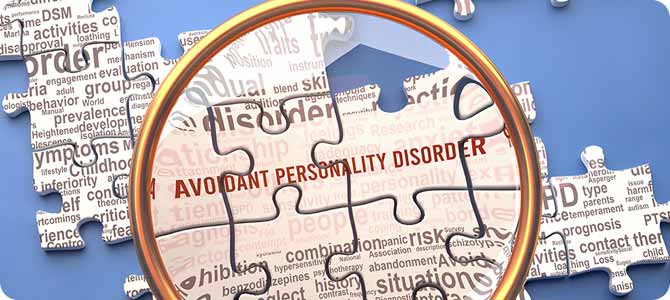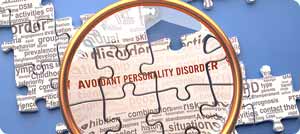Recognizing the Symptoms of Avoidant Personality Disorder
Psychiatry of the Palm Beaches offers expert care to help identify and manage avoidant personality disorder. Dr. David Husted and our compassionate team work closely with patients to address feelings of social inhibition, anxiety, and low self-esteem. Early recognition and treatment can improve quality of life. For more information, contact us or book an appointment online. Visit Psychiatry of the Palm Beaches serving Jacksonville, Boynton Beach, Palm Beach Gardens, Stuart, Royal Palm Beach, Port St. Lucie, Melbourne, Fort Lauderdale, and Jupiter, FL.


Table of Contents:
What are the key symptoms of Avoidant Personality Disorder?
How does Avoidant Personality Disorder affect relationships?
Can Avoidant Personality Disorder cause social isolation?
How do I know if I have Avoidant Personality Disorder?
Avoidant personality disorder is a condition that is often marked by a longstanding pattern of social inhibition, extreme sensitivity to criticism, and intense fear of rejection. These patterns don’t stem from a lack of interest in others, but rather from a deep-rooted fear that any interaction may end in embarrassment or disapproval. Individuals struggling with this condition may often want connection but find themselves withdrawing instead. These tendencies can affect several areas of daily life, especially in social and professional environments. Treatment through Psychiatry of the Palm Beaches can offer structured care that focuses on understanding the root of these behaviors and working to gradually shift thought patterns and coping mechanisms.
Avoidant personality disorder is most often associated with a persistent sense of inadequacy, coupled with an overwhelming fear of being judged or ridiculed. Individuals may avoid social or occupational activities that require significant interpersonal contact simply because they fear being rejected. Everyday interactions can feel distressing when there’s a constant expectation of being disliked or dismissed, even without any clear reason for that belief. This fear tends to grow stronger over time without support, reinforcing the urge to avoid interactions. Many individuals also report difficulty forming friendships or maintaining connections, often stemming from feelings that they’re somehow not worthy of those relationships. Even casual conversations can feel intimidating or overwhelming when someone is consistently anticipating negative feedback. This expectation of criticism often comes with a pattern of second-guessing oneself, avoiding new experiences, and interpreting neutral interactions as proof of failure or inadequacy.
These symptoms remain consistent and can start as early as adolescence, becoming more pronounced as responsibilities and expectations increase in adulthood. What separates these patterns from temporary social anxiety is their intensity and the degree to which they interfere with everyday functioning. A diagnosis comes from examining the depth and persistence of these symptoms, not simply from occasional shyness or discomfort.
Many individuals with avoidant personality disorder deeply desire connection but often keep their distance to avoid the possibility of disapproval. As a result, relationships may remain surface-level or non-existent. Vulnerability can feel too risky when someone is convinced it will lead to shame or abandonment. Even when a relationship does form, the individual may struggle with trust and self-doubt, often assuming they are being judged or disliked, regardless of how much reassurance is offered. This can lead to withdrawal, defensiveness, or a constant need for affirmation. Partners or friends may feel unsure how to respond, which can cause tension or misunderstandings over time. In many cases, the other person may not even realize the extent of the internal distress being carried.
Professional treatment often helps break this pattern by offering tools to challenge harmful thought patterns and identify the difference between perception and reality. With the right support, individuals can learn how to approach relationships from a place of confidence rather than fear. The path to healthier connections is often slow but possible, especially with consistent care and guidance.
Social isolation is often a symptom associated with avoidant personality disorder. When every social setting feels like a risk, the easier choice often becomes avoidance altogether. This can gradually lead to fewer friendships, strained family ties, and limited participation in group activities or community life. Over time, isolation tends to reinforce the belief that staying alone is safer than facing rejection.
The withdrawal isn’t always obvious to others. Someone may keep up appearances, go to work, and maintain basic interactions, but still feel deeply alone or disconnected. Social invitations might be turned down, messages left unanswered, or small talk kept brief to avoid any chance of deeper interaction. This pattern can become isolating even when others around them are trying to include or support them.
The specialists at Psychiatry of the Palm Beaches work with patients to identify how these cycles take shape and how they can be broken. Treatment often begins by building trust within the clinical setting, then expanding that progress into other areas of life. Over time, with the right support, individuals can work toward re-entering the world at their own pace, with a greater sense of self-worth and less fear about what others might think.
Recognizing avoidant personality disorder can be difficult for individuals to do on their own without professional guidance. It typically involves a persistent pattern of avoiding contact due to fear of being criticized or rejected. If someone finds that they consistently decline invitations, stay silent even when they want to speak, or assume others are judging them harshly without much evidence, these may be signs worth examining. The difference between normal caution and avoidant personality disorder typically comes down to impact and duration. When these thoughts and behaviors have been present since adolescence or early adulthood, and they’ve interfered with work, friendships, or romantic connections, the pattern may point toward something more structured. It often takes an experienced mental health provider to help draw that line clearly, based on the individual’s full history and current experience.
At Psychiatry of the Palm Beaches, assessment is handled with care and discretion, with the aim of helping the individual understand their own patterns without shame or judgment. A diagnosis can be the first step toward changing the dynamic, offering insight into why certain struggles keep appearing and what can be done to move forward.
Identifying Symptoms of Avoidant Personality Disorder with Our Team
Our team at Psychiatry of the Palm Beaches specializes in helping individuals identify the symptoms of Avoidant Personality Disorder. Common symptoms include avoiding personal relationships, extreme fear of criticism, and feelings of inadequacy. By recognizing these signs, individuals can take proactive steps to seek treatment and improve their social and emotional lives. For more information, contact us or book an appointment online. We have convenient locations to serve you. We serve patients from Boynton Beach FL, Delray Beach FL, Palm Beach Gardens FL, Jupiter FL, Stuart FL, Palm City FL, Royal Palm Beach FL, Wellington FL, Citrus Ridge FL, Jacksonville FL, Riverside FL, Port St. Lucie FL, Beau Rivage West FL, Melbourne FL, Palm Bay FL, Fort Lauderdale FL, Hollywood FL, Jupiter FL, North Palm Beach FL, and surrounding areas.
Check Out Our 5 Star Reviews



Additional Services You May Need
▸ Mental Wellness
▸ Relationship Coaching
▸ Depression and Mood Disorders
▸ Women’s Health
▸ Panic Disorder
▸ Medications Management
▸ Men’s Health
▸ Individual Psychotherapy
▸ Bipolar
▸ ADHD
▸ Geriatric Mental Health
▸ Couple’s Counseling
▸ Obsessive Compulsive Disorder
▸ Social Phobia Treatment
▸ Eating Disorders
▸ Post Traumatic Stress Disorder
▸ Psychotic Disorders


